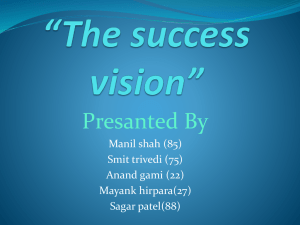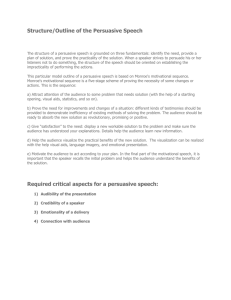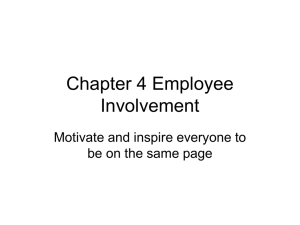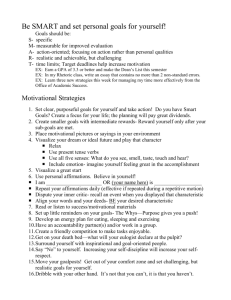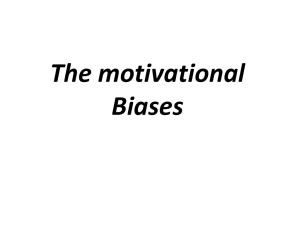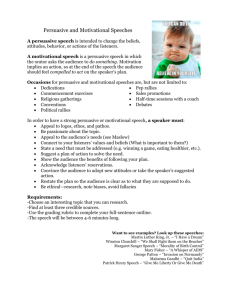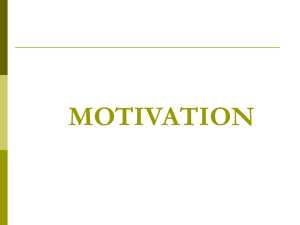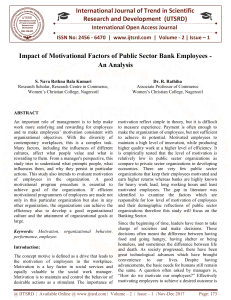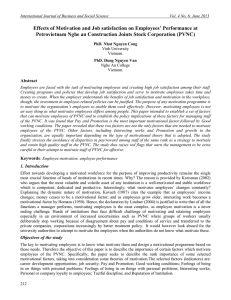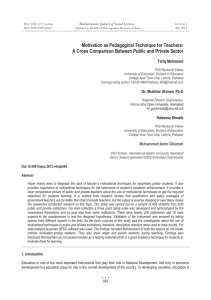The Monroe's Motivated Sequence Speech Topics
advertisement
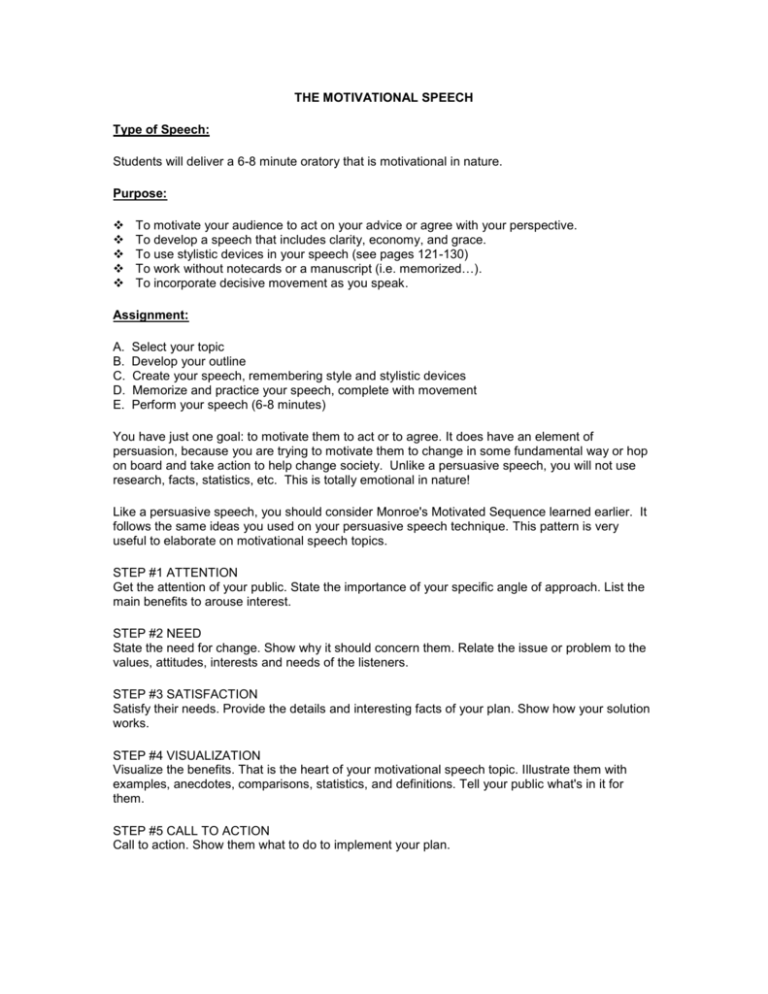
THE MOTIVATIONAL SPEECH Type of Speech: Students will deliver a 6-8 minute oratory that is motivational in nature. Purpose: To motivate your audience to act on your advice or agree with your perspective. To develop a speech that includes clarity, economy, and grace. To use stylistic devices in your speech (see pages 121-130) To work without notecards or a manuscript (i.e. memorized…). To incorporate decisive movement as you speak. Assignment: A. B. C. D. E. Select your topic Develop your outline Create your speech, remembering style and stylistic devices Memorize and practice your speech, complete with movement Perform your speech (6-8 minutes) You have just one goal: to motivate them to act or to agree. It does have an element of persuasion, because you are trying to motivate them to change in some fundamental way or hop on board and take action to help change society. Unlike a persuasive speech, you will not use research, facts, statistics, etc. This is totally emotional in nature! Like a persuasive speech, you should consider Monroe's Motivated Sequence learned earlier. It follows the same ideas you used on your persuasive speech technique. This pattern is very useful to elaborate on motivational speech topics. STEP #1 ATTENTION Get the attention of your public. State the importance of your specific angle of approach. List the main benefits to arouse interest. STEP #2 NEED State the need for change. Show why it should concern them. Relate the issue or problem to the values, attitudes, interests and needs of the listeners. STEP #3 SATISFACTION Satisfy their needs. Provide the details and interesting facts of your plan. Show how your solution works. STEP #4 VISUALIZATION Visualize the benefits. That is the heart of your motivational speech topic. Illustrate them with examples, anecdotes, comparisons, statistics, and definitions. Tell your public what's in it for them. STEP #5 CALL TO ACTION Call to action. Show them what to do to implement your plan. Ideas For Motivational Speech Topics: Below you see a list of general categories that can be narrowed to a topic for a motivational speech. Use your imagination and elaborate on these topics by associating words, thoughts and views. The future--Being a winner--Teamwork/cooperation--"Seize the day…"--Positive thinking— Affirmations—Meditation--Religion/spirituality—Charity--Controlling your tongue--Goal setting-Living with purpose—Joy--Releasing the past—Success--Triumph over tribulations--Decision making—Prioritizing--Overcoming adversity--Creative visualization—Volunteering--Breaking habits—Creativity--Career development--Continuing and/or adult education—Confidence— Discipline in your life--Believe in yourself--Speak the right words--Treat others the way you wish to be treated--Positive thinking Areas of Critique: Delivery of Speech: Voice—All aspects Eye contact Posture/stance Movement Gestures Tone (professional and relaxed) Level of enthusiasm/passion Content: --attention getter --evidence of identification/credibility --organization (Need, satisfaction, visualization, call to action) --use of emotion --effective style --use of stylistic devices --memorable closing
